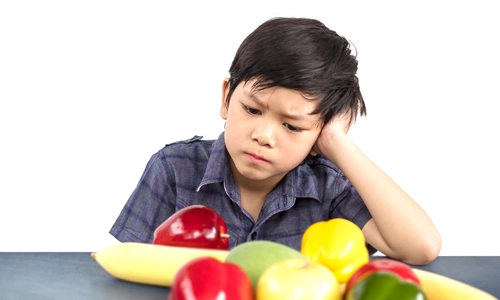Noticing something “off” in your kid’s eating habits can feel confusing, scary, and a little overwhelming. Every parent has that moment where they pause and think, “Is this a phase… or should I be concerned?”
If you’re asking yourself how to know if your kid has an eating disorder, you’re already doing the right thing: paying attention. And trust me, that instinct of yours? It matters.
Take a breath. Let’s walk through this together.
First things first: You're not alone. Really.

Kids go through growth spurts, food cravings, random boycotts of vegetables they swore they loved last week — it’s all normal. But sometimes, those changes become patterns that just don’t sit right with you.
And guess what?
Your intuition is one of the strongest tools you have as a parent.
Let’s talk about what to look for in a way that’s gentle, clear, and zero percent judgmental.
1. Sudden, Unexplained Changes in Their Eating Habits

Think back to how your child normally eats. Now ask yourself:
- Are they skipping meals more often?
- Saying they “already ate” when you know they didn’t?
- Becoming oddly strict about portion sizes or certain foods?
- Eating alone more than usual?
One or two changes might be normal. But a pattern? That’s worth noticing.
2. A New Obsession With Body Image

This one can be subtle.
Maybe your kid suddenly:
- Comments a lot about their weight
- Avoids certain outfits
- Pinches their stomach or thighs in the mirror
- Follows strict “fitspo” accounts online
- Talks about dieting even though they're still growing
If body image becomes a daily topic, that’s a gentle cue to lean in and observe.
3. Food Disappearing… or Barely Being Touched

Both extremes can be red flags:
Bingeing
Food vanishes suddenly, especially snacks or sweets — and your child seems embarrassed or defensive when asked.
Restricting
They push food around their plate instead of eating it, avoid family meals, or claim to be “too full” even when they haven’t eaten all day.
It’s not about catching them — it’s about noticing the pattern.
4. Big Emotions Around Mealtime

Have you noticed:
- Anxiety when it’s time to eat?
- Irritability when food talk comes up?
- Anger when encouraged to try a bite?
- Guilt or shame after eating certain foods?
Kids don’t usually have big feelings over meals unless something deeper is going on.
5. Physical Signs that Sneak Up

These can be easy to miss:
- Clothes suddenly looser or tighter
- Frequent stomach aches
- Feeling dizzy often
- Dry skin or brittle nails
- Fatigue or sudden drop in energy
Eating disorders aren’t just emotional — they show up in the body too.
So… what now?
If your instinct is whispering, “Something isn’t right,” don’t ignore it.
Start small:
- Pick a calm moment
- Sit with them privately
- Lead with love, not fear
Something simple like: “I’ve noticed you seem a little stressed around food lately. Do you want to talk about it?”
Your child may open up right away, or they may not. But knowing you’re paying attention? That’s huge for them.
And yes — it’s absolutely okay to reach out to a pediatrician, therapist, or nutrition expert. You’re not “overreacting.” You’re protecting your child.
Learning how to know if your kid has an eating disorder isn’t about becoming an expert overnight — it’s about tuning in, noticing gentle signs, and showing up with your full heart.
You don’t have to solve everything today. You don’t have to have the perfect words. You only have to care — and you already do.













